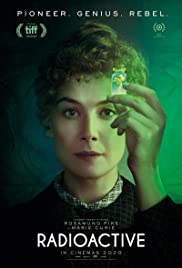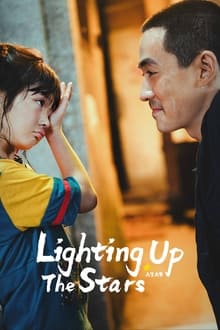
The film portrays Saint Peter reflecting on his time with Jesus and his fellow Apostles during his final imprisonment in Rome. In particular, Peter attempts to convert one of his jailers, Martinian, by relating the life, teachings, and sacrifice of Jesus.
You May Also Like

Love, motherhood and a musical career strike dissonant chords in this dark tale of a young Russian woman who tries to keep her balance among wealthy French expats in New York.

Manas, an ex-factory floor manager loses his job during the pandemic. He is then forced to work as a food delivery rider, grappling with the app and the world of ratings and incentives. Life is relentless for him, but not without shared moments of joy with his wife, Pratima. The film captures the life of invisible ‘ordinary’ people, hidden in plain sight.

Second part of the film “Sorry if I love you”. Alex (Raoul Bova) and Niki (Michela Quattrociocche) are more in love than ever. They have just returned from the lighthouse on the island Blu where they have lived unforgettable days. Niki returns to see his friends, but a number of important changes in their lives will test the friendship of the girls. Alex also resume life with his old friends. All of them, Flavio, Enrico and Pietro, are no longer serene and safe husbands due to certain difficulties that have compromised their marriages.


Two young dreamers coast through Bogota’s alleys on the day of Iron Maiden’s first ever concert in Colombia. However, their day is wrecked when hoodlums steal their most valued possessions: the tickets to see their favorite band.

Set during the summer of 1957. Ex-racecar driver, Enzo Ferrari, is in crisis. Bankruptcy stalks the company he and his wife, Laura, built from nothing ten years earlier. Their tempestuous marriage struggles with the mourning for one son and the acknowledgement of another.

Emigration is one of the most pronounced issues faced by the post-communist Romanian society. With a script inspired from the life of the Romanian community in Cyprus, the film tells a painful, personal story in a world in which we use only numbers to talk about emigration, prostitution and suffering, as an unfortunate statistic. Abused by her step father, then driven away from home, Eva, a Romanian teenager, becomes a victim of human trafficking. She ends up prostituting herself in Cyprus. Years later, the young woman creates her own web of relations and becomes a full-fledged “courtesan” for influential men: politicians, diplomats, business people. Her life takes a dramatic turn when she is diagnosed with AIDS.

Tells the story of Nobel Prize winner Marie Curie and her extraordinary scientific discoveries — through the prism of her marriage to husband Pierre — and the seismic and transformative effects their discovery of radium had on the 20th century.


A young woman is accused of “Immorality” (aka prostitution) and she is sent for re-education to work on a construction site.

Ichikawa’s 1956 adaptation of Nihonbashi was the first to take the work of Kyoka Izumi— until then regarded as a writer of common tragic melodramas—and re-evaluate it as a tanbi-ha work of decadence, aestheticism, and intrigue. Ichikawa’s film presents the tragic plot of the young geisha who is unable to enact her love for a man publicly in any way other than a histrionic story of torment, a heart-rending tale of lovers being crushed by fate. Instead, Ichikawa shows the contest of wills that transpires as two geisha, Oko and Kiyoha fight for the top spot in Nihonbashi, the pinnacle of the Tokyo geisha world. Nihonbashi is an elegant, if steely, exposition of manners. The young doctor, Shinzo Katsuragi, is the object of affection for both women, but appears to be more the choice reward for the plotting and thieving of these two early modern superwomen, than a lover they swoon over.

A man must fight for his fiancée’s affection, after her old college friend visits with plans of rekindling more than just a friendship.